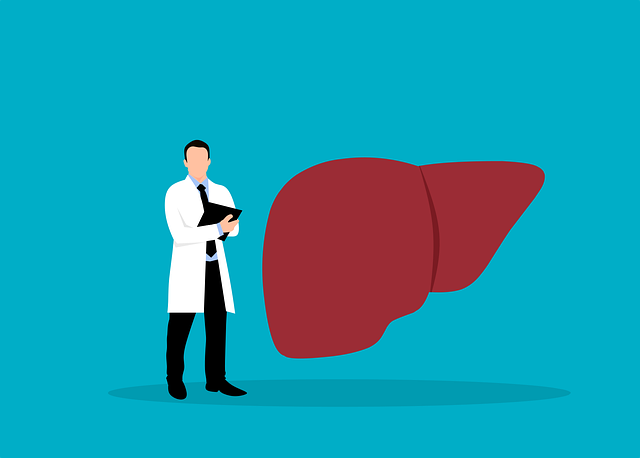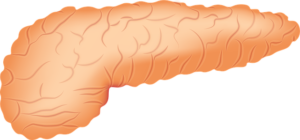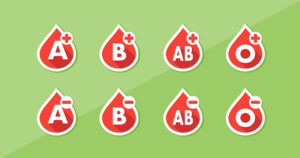Introduction to liver pain and liver disease
The liver is one of the most vital organs in the human body, responsible for crucial functions like detoxification, metabolism, and the production of bile. When the liver is not functioning properly, it can lead to liver pain and various liver diseases. Understanding the signs and symptoms of liver disease is essential in order to seek timely medical intervention. In this article, we will explore the importance of liver health, common causes of liver pain, and the red flag symptoms that indicate liver disease.
Understanding the importance of liver health
Maintaining a healthy liver is crucial for overall well-being. The liver plays a key role in filtering toxins from the blood, regulating cholesterol levels, and metabolizing nutrients. It also produces bile, which aids in digestion. When the liver is not functioning optimally, it can lead to a range of health issues. Therefore, it is important to prioritize liver health by adopting a balanced diet, engaging in regular exercise, limiting alcohol consumption, and avoiding exposure to harmful substances.
Common causes of liver pain
Liver pain can be caused by various factors, including liver diseases, infections, alcohol abuse, and certain medications. One of the main causes of liver pain is liver inflammation, which can occur due to conditions like hepatitis, fatty liver disease, or cirrhosis. Hepatitis, for example, is a viral infection that causes inflammation of the liver and can lead to liver pain. Fatty liver disease, on the other hand, is characterized by the accumulation of fat in the liver, which can also cause discomfort and pain in the abdominal region.
Red flag symptoms of liver disease
Recognizing the early signs and symptoms of liver disease is vital for timely diagnosis and treatment. Some red flag symptoms to watch out for include persistent fatigue, unexplained weight loss, jaundice (yellowing of the skin and eyes), abdominal pain and swelling, and dark urine. These symptoms can indicate liver damage or dysfunction and should not be ignored. If you experience any of these symptoms, it is important to consult a healthcare professional for a thorough evaluation.
Recognizing signs that your liver is struggling
In addition to the red flag symptoms mentioned earlier, there are other signs that your liver may be struggling. These include easy bruising or bleeding, changes in appetite, nausea or vomiting, itchy skin, and changes in the color of stool. It is important to pay attention to these signs as they may indicate liver dysfunction. If you notice any of these symptoms persisting or worsening over time, it is crucial to seek medical attention to determine the underlying cause and receive appropriate treatment.
Understanding acute liver failure and its symptoms
Acute liver failure is a life-threatening condition that occurs when the liver suddenly loses its ability to function. This can happen within days or weeks and requires urgent medical intervention. Some symptoms of acute liver failure include confusion, abdominal pain, jaundice, easy bruising or bleeding, and swelling in the legs and abdomen. If you experience any of these symptoms, it is important to seek immediate medical attention, as acute liver failure can be fatal if not treated promptly.
Signs of liver damage from alcohol consumption
Excessive alcohol consumption can cause significant damage to the liver over time. It can lead to conditions such as alcoholic hepatitis, alcoholic fatty liver disease, and alcoholic cirrhosis. Some signs of liver damage from alcohol consumption include abdominal pain, fatigue, yellowing of the skin and eyes, and swelling in the legs and abdomen. It is important to be aware of these signs and to seek medical help if you suspect that your liver may be affected by alcohol-related damage.
Recognizing signs that your liver is dying
In severe cases, liver disease can progress to a point where the liver starts to fail completely. This is known as liver failure or end-stage liver disease. Some signs that your liver may be dying include a significant decline in liver function, fluid buildup in the abdomen, mental confusion, and an increased risk of infections. If you observe any of these signs, it is crucial to seek immediate medical attention, as a liver transplant may be necessary to save your life.
Steps to take if you suspect liver disease
If you suspect that you may have liver disease, it is important to take certain steps to ensure proper diagnosis and treatment. Firstly, make an appointment with a healthcare professional who specializes in liver diseases. They will conduct a thorough evaluation, including blood tests, imaging studies, and possibly a liver biopsy, to determine the cause and extent of liver damage. It is also important to disclose any relevant medical history, including alcohol consumption or exposure to hepatitis viruses.
Treatment options for liver disease
The treatment options for liver disease depend on the underlying cause and the stage of the disease. In some cases, lifestyle changes, such as adopting a healthy diet and abstaining from alcohol, may be sufficient to manage the condition. However, more advanced liver diseases may require medications, procedures, or even liver transplantation. It is important to follow the treatment plan recommended by your healthcare professional and to attend regular follow-up appointments to monitor your liver health.
Prevention and lifestyle changes for liver health
Prevention is always better than cure when it comes to liver health. To maintain a healthy liver, it is important to adopt certain lifestyle changes. These include consuming a balanced diet rich in fruits, vegetables, and whole grains, exercising regularly, limiting alcohol consumption, avoiding exposure to toxins and harmful substances, and practicing safe sex to prevent hepatitis infections. Regular check-ups and screenings can also help detect liver diseases at an early stage, when they are more easily treatable.
Conclusion
Liver pain can be a sign of underlying liver disease and should not be ignored. By understanding the importance of liver health, recognizing the red flag symptoms of liver disease, and taking appropriate steps if you suspect liver disease, you can protect your liver and overall well-being. Remember to prioritize a healthy lifestyle, seek medical attention when needed, and follow the recommended treatment plan. Your liver plays a vital role in your health, and taking care of it should be a top priority.
To learn more about liver pain and liver health, visit Healthline for valuable information and resources.



